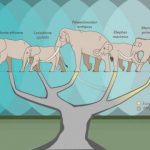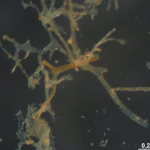How Close Are We to Successfully Cloning the First Human?0
- From Around the Web, Science & Technology
- June 29, 2017
When Will We Clone a Human?

When Will We Clone a Human?

‘Apparently, Neandertals possessed a good knowledge of medicinal plants … the use of antibiotics would be very surprising, as this is more than 40,000 years before we developed penicillin’

To win the war against antibiotic resistant super bugs, scientists seek to find the origin of resistance genes. Further, they try to identify how the genes are introduced to disease-causing bacteria — so-called pathogens. Identifying where resistance genes come from and how they spread somewhat compares to finding patient zero in an outbreak, which is not an easy task.

New research reveals that a species of giant elephant that lived 1.5 million to 100,000 years ago — ranging across Eurasia before it went extinct — is more closely related to today’s African forest elephant than the forest elephant is to its nearest living relative, the African savanna elephant.

The purpose of this investigation was to determine the validity of the claim that the Starchild Skull, a 900-year-old anomalously shaped skull, belonged to an alien-hybrid being.

What lurks above.

A clump of vessel-like structures Mary Schweitzer’s team extracted from a Tyrannosaurus rex bone that was almost completely demineralized could give us an answer.

The mysterious relics — an object and a piece of organic material — were traced during a decades-long genealogical study into Leonardo’s family.
Science fiction has long imagined alien worlds inhabited by silicon-based life, such as the rock-eating Horta from the original Star Trek series.

The TRUTH is coming people and the true answer to the origin life could simply be the number 37 which could prove that our genetic code was created by ancient aliens, according to a new scientific theory – The drip feeding of disclosure continues it appears!